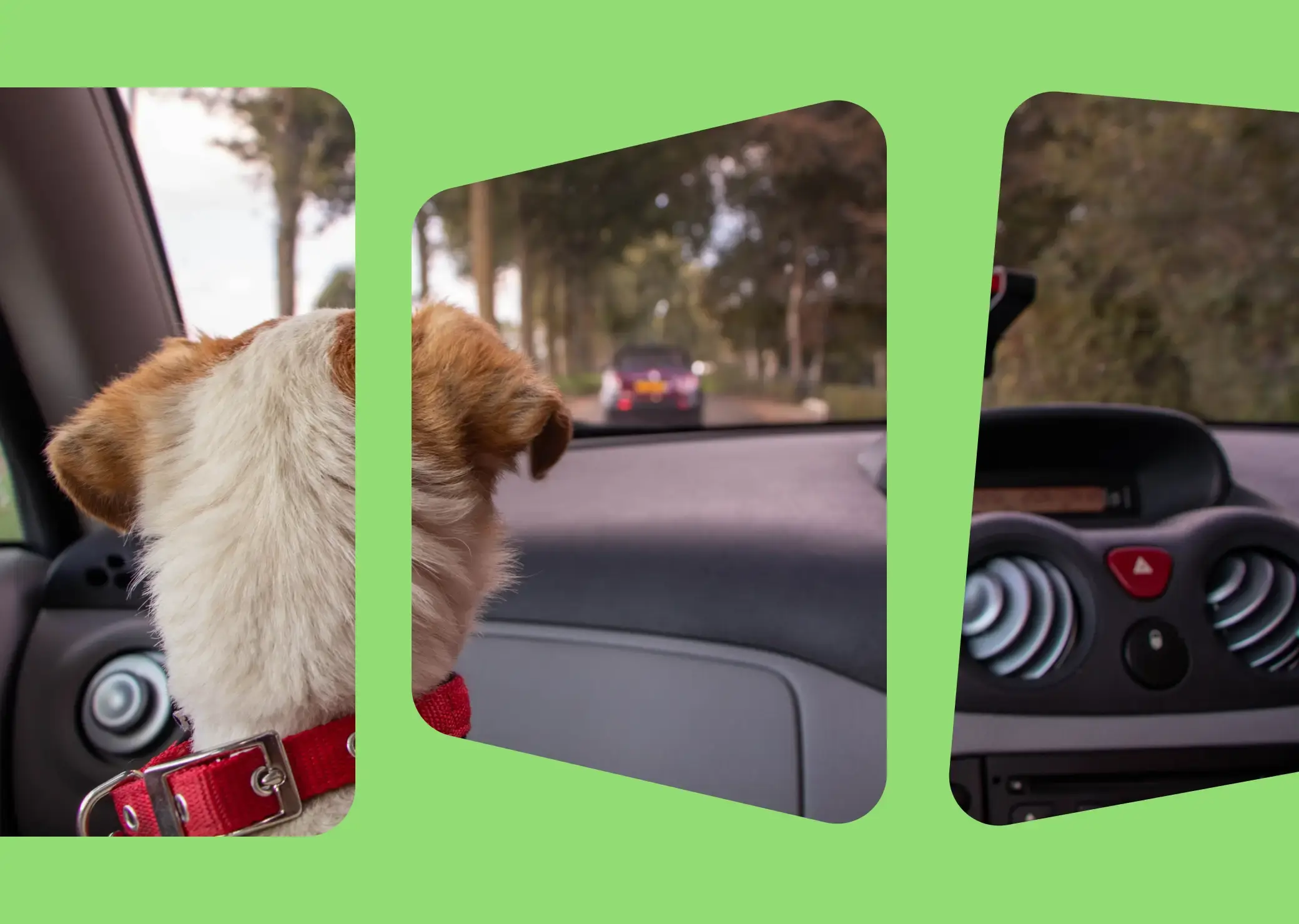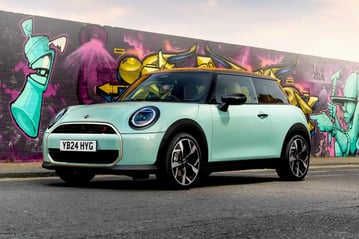- Carmoola
- Blog
- Car Finance
- Can I get car finance as a young driver?
- 🗞 Car Finance
- Last updated: Feb 11, 2022
- 8 Min Read
Can I get car finance as a young driver?
Written by

Verified by


See how much you can borrow in 60 seconds
| Representative Example | |
|---|---|
| Loan amount | £10,000 |
| Interest rate | 13.9% APR |
| 54 payments of | £246 |
| Total cost of credit | £3,284 |
| Option to purchase fee | £1 |
| Total payable | £13,285 |
Buying your first set of wheels is a major life milestone. Whether you’ve just passed your test or you’re ready to upgrade from your parents’ old faithful hand me down, becoming a car owner just hits different.
Unfortunately, new cars don’t grow on trees (or fall from the sky, we checked). You’ll likely need to dip into your savings to buy one in cash or find a finance deal to help spread the cost over time.
If you do need to get car finance, it can be harder as a young driver - but it’s not impossible.
When you’re under 21, you might not have much of a credit history yet and your affordability could be low (it’s not all bad, you’ve not got any wrinkles yet either!)
So, while you might not qualify for a loan with every lender, there are specialist providers who can help young drivers finance their first set of wheels – let us explain how.
What different car finance options are available for young drivers?
There are three main types of car finance that you might want to consider as a young driver.
Here’s our quick-fire guide to the big three:
Hire Purchase (HP)
HP spreads the cost of buying a car over a period of between one and six years. Once all the payments are made (including the small Option to Purchase admin fee), the car will be all yours!
- HP loans are secured against the car – you won’t own it during the loan term
- Your monthly payments can be higher as you’re working towards car ownership
- You probably won’t have any mileage restrictions to worry about
Personal Contract Purchase (PCP)
PCP is a lot like HP, but it gives you more options at the end of your loan term: you can hand the car back, buy it with a one-off balloon payment, or trade it in for a newer model.
- PCP loans usually come with annual mileage restrictions
- Your monthly payments can be lower as you only borrow the value your car will lose, not its full purchase price
- You’ll need to pay a balloon payment to become the car’s legal owner – and that could run to hundreds, or even thousands, of pounds
Personal Loan
With a personal loan, you’ll become the car’s owner as soon as you use the money to pay the dealer. But, because it’s unsecured, you might need a good credit score to qualify.
- Keep up with your loan repayments and you can sell, modify, or trade in the car whenever you like
- You won’t have to worry about mileage restrictions
- You might find it harder to be approved for a personal loan as a young driver
Can I get car finance if I’m under 18?
While you can nail your mirror, signal, manoeuvre skills and pass your driving test when you turn 17, you’ll need to wait a little longer to qualify for finance. Legally, you must be 18 or over to sign a credit agreement.
If you can’t wait for this landmark birthday, you could save up the cash to buy a car outright or find someone very generous to buy you one as a gift.
In the meantime, there’s no harm in adopting good financial habits early. Keeping track of your budget, building your credit score, and starting to save a deposit could all boost your chances of securing young driver car finance.
Can I get car finance with a provisional driving licence?
If you’ve not yet upgraded to that coveted pink licence, the green version can be just as useful.
Applying for car finance with a provisional licence might limit the number of lenders that are willing to offer you a loan, but there are others who will happily accept a provisional as proof of identity.
Can students get car finance?
No matter whether you need a car to get to and from lectures, your work placement, or to head over to your mate’s house, there are a whole host of reasons why a student might need a set of wheels.
Full and part-time students can qualify for a car loan, but it isn’t always easy. If your affordability is low and you don’t have much of a credit history, you could present a risky prospect for potential lenders.
To improve your chances, consider getting a part-time job (if it fits around your studies), taking steps to boost your credit score, and choosing a cheaper used car rather than a top of the range BMW or Audi. You can always upgrade to your dream wheels later in life.
Do I need to be employed?
Being in full or part-time employment isn’t necessarily required when applying for car finance as a young driver, but it could be a dealbreaker for lenders.
It’s all about the monthly repayments. When you sign your agreement, you’ll be agreeing to make a fixed payment every month until the loan term ends. If you have a regular income that can put lenders’ minds at ease as it makes it more likely that you’ll make that payment.
Should a new driver get a car on finance?
The right choice for you will always depend on your personal circumstances; when it comes to car finance, there’s no such thing as one-size-fits-all.
When you’re a young or new driver, affordability will probably be your biggest concern. Even if you have a job, you might not be earning the big bucks just yet and you’ll also need to find room in your budget for a high insurance premium, fuel, and maintenance costs.
You’ll also need to pay interest on the loan and agree to making fixed monthly payments for up to six years – it’s a big commitment and one that deserves some serious thought.
If you’re keen to get an idea of how much your monthly payments might be, head over to our car finance calculator.
Think finance is the right way forward for you? Don’t be afraid to take your time, compare the options available, and consider different types of finance. You might even want to look at joint or guarantor loans as these can help reassure potential lenders and still help to improve your credit score over time (assuming you make the payments on time).
FAQs about car finance for young drivers
What is guarantor car finance?
With guarantor car finance, you’ll appoint someone who agrees to step in and make your finance repayments on your behalf if you don’t. They usually need to have a good credit score and some lenders will also ask that they’re a homeowner and aged 21.
The loan will still be in your name, so it could help improve your credit score over time, but this type of finance reassures lenders as they know your guarantor will make your payments even if you can’t!
Can I take out a joint car finance application?
If you’d rather not go it alone, joint car finance is a type of loan that you apply for with another person, usually your partner or a family member.
The loan will be in both your names and can be a good option if you’re a young driver and have a poor credit score or limited affordability, which might mean you struggle to secure finance on your own.
Keep in mind that you’ll both be responsible for making the repayments and both your credit scores can be impacted by how well you manage the loan.
Can my parents apply on my behalf?
Unfortunately, while your parents might want to help you out, they can’t apply for finance on your behalf. If they apply and don’t disclose that you’ll be the registered keeper and main driver, it could even be considered fraud!
Accommodation finance deals do exist, but they’re rare. This is where the agreement is in your name, but the lender is aware that you won’t be the car’s main driver.
All car finance agreements are tailored to an individual and their circumstances. If your parents take out car finance for you but use their own details, the lender’s decision will be based on the wrong information, and you’ll have skipped all the safeguards put in the place to protect both them and you.
If they’d still like to help you get your first set of wheels, your parents could always give you a deposit as a cash gift or take out a personal loan themselves and then use that money to buy you a car.
See how much you can borrow in 60 seconds
| Representative Example | |
|---|---|
| Loan amount | £10,000 |
| Interest rate | 13.9% APR |
| 54 payments of | £246 |
| Total cost of credit | £3,284 |
| Option to purchase fee | £1 |
| Total payable | £13,285 |
Related articles
What Is GMFV in PCP Car Finance? Guaranteed Minimum Future Value Explained
GMFV, or Guaranteed Minimum Future Value, is the amount your lender estimates your car will be worth at the end of your PCP...
Does Financing a Car Build Your Credit?
Financing a car can build credit when you make payments on time, but it can damage your score if you miss payments or take on...
Car Refinancing: What Is It and How It Can Lower Your Monthly Payments
Refinancing your car can give you benefits like lowering your monthly payments or reducing interest costs, depending on your...

.webp?width=832&height=592&name=customer-support%20(1).webp)










.webp?width=400&height=285&name=online-shoppers-with-dog%20(1).webp)


.jpg?width=500&height=356&name=Vintage%20car%20going%20to%20an%20old%20town-1%20(1).jpg)





